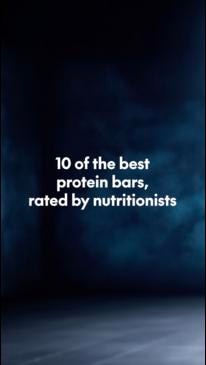This is the one protein mistake you need to avoid
Australians wanting to up their protein intake often eat a slab of meat – but dietitian Susie Burrell says this is not the answer.
Do you know how much protein you eat each day? Or, more importantly, do you know how much you need?
As we come to learn more about the importance of protein, especially when it comes to helping to optimize metabolism as we move through our 30s, 40s and beyond, we also come to understand that sitting down to a decent piece of meat or chicken at dinner will simply not cut it.
Rather, not only do most of us need greater amounts of high-quality protein in our diet throughout the day, but how and when we consume this protein is a lot more important than previously thought.

Like what you see? Sign up to our bodyandsoul.com.au newsletter for more stories like this.
What is protein?
Protein is one of the three key macronutrients, the others being fat and carbohydrate. Protein can be found in both plant and animal foods, including whole grains, legumes, dairy, eggs and meat and the main difference is that animal-based proteins contain all the amino acids or building blocks of protein. This means that animal-based protein is more readily absorbed in the body compared to most types of plant-based protein. Unlike carbohydrates, the body requires a certain amount of protein per day. Protein has many functions in the body including helping to make new cells, for muscle growth and repair, to build connective tissue including skin and bone, to carry oxygen around the body, to build hormones and to make the enzymes that digest food.
How much do we need?
In recent years there has been increased attention paid to protein requirements, as more research has found the benefits of maintaining an optimal intake of protein, especially as we age and are more vulnerable to muscle mass loss. As muscle mass is the metabolically active tissue that actively burns calories, preserving muscle mass as we get older helps to support weight control but also helps to keep the body strong and agile as we age. As such, it is recommended that Australian adults get at least 0.75g of protein per kilo of body weight, or 60-80g per day, at a minimum. If the goal is to optimize protein intake, prevent muscle mass loss and even increase muscle mass, requirements are between 1.2-1.6g per kilo of body weight of protein per day, or upwards of 100-140g for the average adult.
The link between protein and weight loss
Protein also plays a number of roles when it comes to supporting weight loss. As a nutrient, protein is digested more slowly than carbohydrates, helping to support fullness and appetite control. Specifically, the amino acid leucine has also been shown to play a key role in regulating insulin action in the body, with 2-3g of leucine in a meal helping to bind insulin receptors. As insulin is intrinsically involved in glucose and fat metabolism, keeping levels tightly controlled via a high leucine intake supports appetite and fat metabolism at a cellular level.
How much do we get?
What may come as a surprise is that while the average Australian gets plenty of protein in their diet, it is not always the best quality, with plenty of processed foods displacing more nutrient-dense sources of protein in the diet. Specifically, data from the Australian Health Survey found that only 14 per cent of Australian adults reach their recommended 2.5 servings of high-quality protein per day.
The other important thing to consider when it comes to protein intake, is timing, as optimal absorption and metabolism are much more dependent on consuming smaller amounts regularly than just sitting down to a 500g steak at night. In fact, optimal absorption in the body occurs at amounts of just 25-30g of good quality protein, or the equivalent in just 100g of lean chicken or beef. This means that when it comes to optimizing our intake of protein, it is all about consuming it regularly throughout the day, especially if the goal is to gain lean muscle mass.
How to get enough?
Aiming for 20-30g of total protein at each meal and 10-20g at each snack will help you reach your daily protein targets. In food terms, this translates to making sure each meal contains a protein-rich food – two eggs, a tin of tuna or salmon, 100g of lean meat or chicken, a serving of protein-based yoghurt or protein powder, or if you are plant-based, adding a good source of plant-based protein each time you eat – think legumes, tofu or protein enriched plant-based milks. Look out for protein-rich snacks that are dairy-based, or offer upwards of 10g of protein per serving, and remember, while processed foods and snacks may contain protein, it is generally not as well absorbed as more natural forms.
Sample Low Protein Day = 16g protein
- Almond milk coffee and sourdough
- Sushi Rolls and a juice
- Fruit, Packet of chips
- Pad Thai
Sample High Protein Day = 85g protein
- Skim Latte and Breakfast wrap with egg
- Sashimi and Edamame
- Yogurt protein, fruit and nuts
- Chicken and vegetable stir fry
Can I have too much protein?
While protein is essential for a number of functions in the body, and many of us need to consume more throughout the day to help optimize metabolism, more is not better, ultimately being excreted as waste, and putting extra pressure on the kidneys which can be damaging long term. For this reason, It is recommended that adults do not consume more than 2-3g of protein per kilogram for any extended period of time.
Susie Burrell is a dietitian and nutritionist and holds a Master’s degree in coaching psychology.